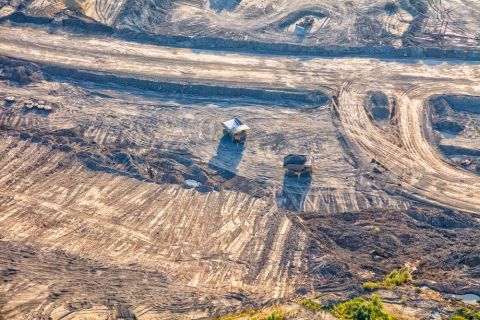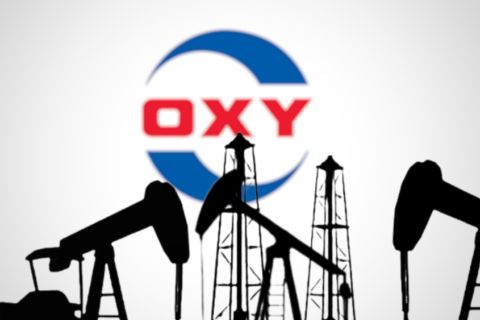Learn more about Hart Energy Conferences
Get our latest conference schedules, updates and insights straight to your inbox.
Republicans will seek to boost American production of lithium, copper and other electric-vehicle (EV) metals after the U.S. midterm elections gave them narrow control of the House of Representatives and the power to influence how regulators approve or deny mining projects.
The party on Nov. 16 was projected to have won at least 218 seats needed to control the House when the new Congress begins on Jan. 3, a narrow victory after more than a week of vote counting.
Republican leaders had promised voters during the election they would cut the mining permit review timeline in half and boost domestic EV mining rather than seek more supply overseas. They also want federal agencies to coordinate better when reviewing mine permit applications and to place time limits on when lawsuits against mines may be filed.
"We need to step up our mining activities if we're going to have an electrified economy," said Representative Bruce Westerman, an Arkansas Republican who is poised to become chair of the powerful House Natural Resources Committee.
Westerman and other Republicans will be partially stymied by Republicans' failure to wrest control of the U.S. Senate from Democrats.
"We're not talking about gutting environmental laws," Westerman told reporters on Nov. 17. "We're talking about making environmental laws work so we can protect the environment and have a strong and vibrant economy at the same time."
Westerman said he has spoken with Senator Joe Manchin, a West Virginia Democrat and the chair of the Senate energy committee, about permitting reform and is "hopeful that it's an area where we can work together."
With their newfound control, Republicans could threaten to withhold funding from agencies perceived as taking too long to approve mines. President Joe Biden, though, will still oversee the permitting process.
Miners and their Republican supporters, who have long complained that the U.S. mine permitting process is capricious, say they are hopeful for some changes in the new Congress.
"We're optimistic that the oversight function will be robust and that the [Biden] administration will comply with legal statutes already laid out," said Rich Nolan, head of the National Mining Association, an industry trade group.
Conservationists, who are typically aligned with Democrats, have argued that regulatory review should not be unduly rushed despite the rising popularity of EVs.
Republicans plan to investigate Biden's decisions to halt development of Antofagasta Plc's Twin Metals copper project in Minnesota and Rio Tinto Plc's Resolution Copper project in Arizona. The Resolution project is opposed by Representative Raúl Grijalva, an Arizona Democrat who will relinquish his chairmanship of the House Natural Resources Committee to Westerman.
"We want the politics to be out of the permit review process and let the facts, the science and the truth be the determinant as to whether a mine moves forward," said Representative Pete Stauber, a Minnesota Republican set to become chair of the House's Subcommittee on Energy and Mineral Resources, which oversees mining on federal land.
Biden's regulators are also scrutinizing a Nevada lithium project from Ioneer Ltd. Proposed mines from Lithium Americas Corp. and Polymet Mining Corp. face stiff court challenges.
Other parts of the energy industry are hoping for permitting reform, too. Alan Armstrong, CEO of Williams Companies Inc., said he expects a tough but successful fight to streamline the permitting process for hydrogen pipelines.
Legislation signed by Biden earlier this year extends EV tax credits to minerals produced in countries with U.S. free trade deals. Republicans say that expanding such deals to other countries is not a priority for the new Congress.
"My first goal would be to develop the resources we have here at home," said Westerman.
Recommended Reading
Canadian Natural Resources Boosting Production in Oil Sands
2024-03-04 - Canadian Natural Resources will increase its quarterly dividend following record production volumes in the quarter.
Buffett: ‘No Interest’ in Occidental Takeover, Praises 'Hallelujah!' Shale
2024-02-27 - Berkshire Hathaway’s Warren Buffett added that the U.S. electric power situation is “ominous.”
Kissler: OPEC+ Likely to Buoy Crude Prices—At Least Somewhat
2024-03-18 - By keeping its voluntary production cuts, OPEC+ is sending a clear signal that oil prices need to be sustainable for both producers and consumers.
NGL Growth Leads Enterprise Product Partners to Strong Fourth Quarter
2024-02-02 - Enterprise Product Partners executives are still waiting to receive final federal approval to go ahead with the company’s Sea Port Terminal Project.
Private Equity: Seeking ‘Scottie Pippen’ Plays, If Not Another Michael Jordan
2024-01-25 - The Permian’s Tier 1 acreage opportunities for startup E&Ps are dwindling. Investors are beginning to look elsewhere.





